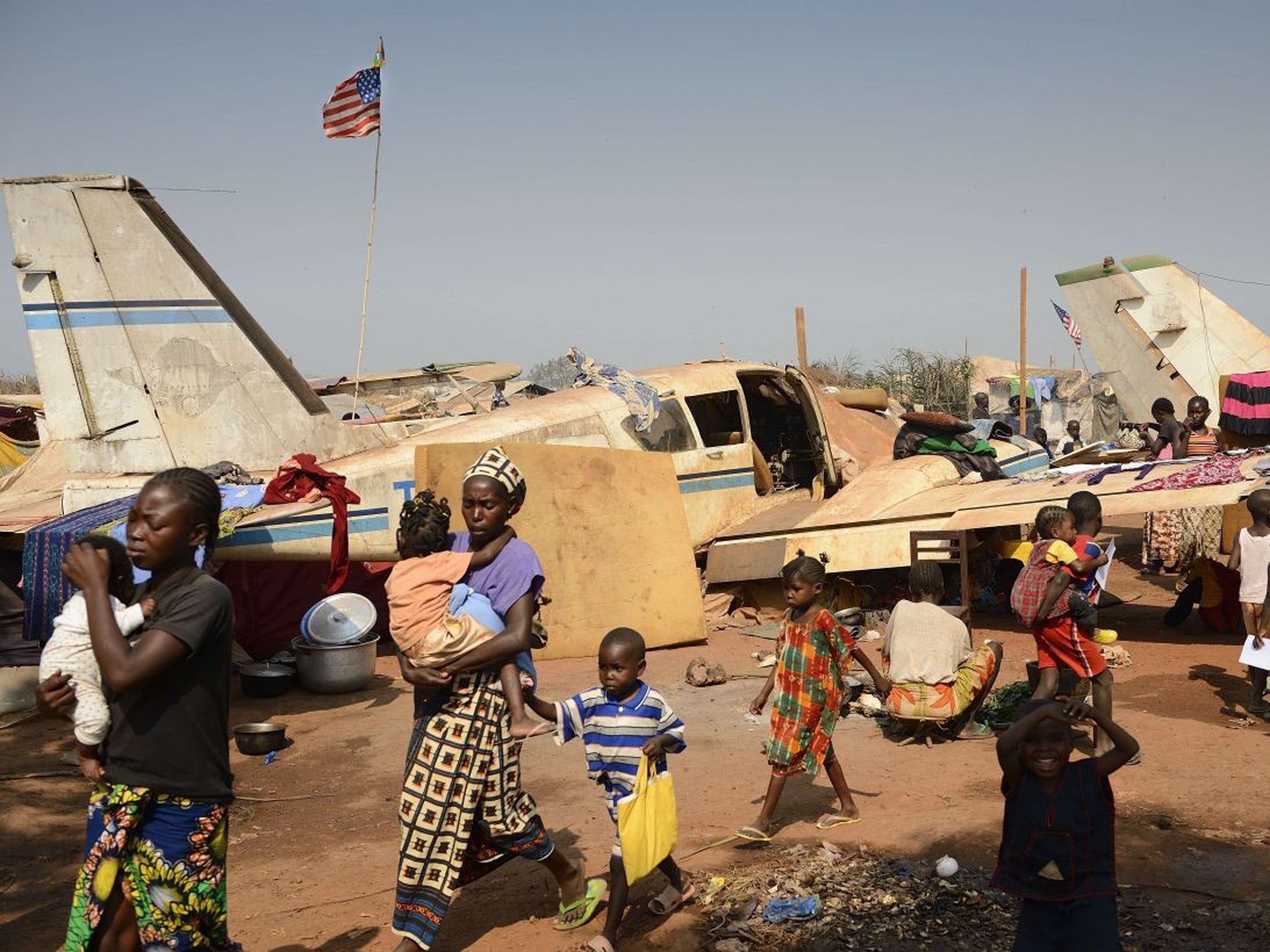Central African Republic President Michael Djotodia faces pressure to step down over religious violence
Muslim leader’s exit risks creating greater power vacuum

Your support helps us to tell the story
From reproductive rights to climate change to Big Tech, The Independent is on the ground when the story is developing. Whether it's investigating the financials of Elon Musk's pro-Trump PAC or producing our latest documentary, 'The A Word', which shines a light on the American women fighting for reproductive rights, we know how important it is to parse out the facts from the messaging.
At such a critical moment in US history, we need reporters on the ground. Your donation allows us to keep sending journalists to speak to both sides of the story.
The Independent is trusted by Americans across the entire political spectrum. And unlike many other quality news outlets, we choose not to lock Americans out of our reporting and analysis with paywalls. We believe quality journalism should be available to everyone, paid for by those who can afford it.
Your support makes all the difference.Michel Djotodia, the Muslim rebel leader who became the interim President of the Central African Republic before a bloody conflict pushed the country towards civil war, agreed to resign on Friday.
On the streets of Bangui, the capital, the announcement was met with jubilation. “Finally we are free. We are going to return home at last,” said Carine Gbegbe from a refugee camp on the southern outskirts of the capital.
More than one in five residents of the overwhelmingly Christian nation have been displaced, and more than 1,000 killed, since fighting between Christian and Muslim militias intensified in December. Across the country many villages are deserted, and in the last month the number of refugees doubled.
The deteriorating security situation led the UN to warn of an impending humanitarian disaster. Djotodia, who seized power in a coup last year, had been under mounting pressure to step aside. But yesterday, some warned that his departure could create an even greater power vacuum in a land long marked by coups and dictatorship.
Ahmat Allami, the secretary-general of the Economic Community of Central African States, announced the resignation of Djotodia after a crisis summit in neighbouring Chad. Legislators from CAR were also flown to the Chadian capital of N’Djamena to join the discussions.
Djotodia’s Prime Minister, Nicolas Tiengaye, a long-time opposition leader before last year’s coup, has also agreed to resign. The departures leave the country in the hands of a weak transitional council. It now has two weeks to find a successor to Djotodia.
Rumours this week that Djotodia would resign had prompted the presidency to release a sharply worded denial. However, it had become clear in the past month that patience with Djotodia was waning within the international community.
Although the President had called for peace in the streets, only French troops and African peacekeepers had been able to stop some of the mob attacks. A frustrated Djotodia responded by saying no one could solve CAR’s problems in just eight months. “I am not God, I hope. I am a man like you. And this country is vast,” he told reporters. “You could bring an angel from the sky to govern this country and there would still be problems.”
CAR has long been one of the world’s most unstable countries. The coup last March brought to power armed rebels, mostly from the minority Muslim population in the north, who carried out atrocities against civilians.
In early December, a Christian militia backed by loyalists of the ousted President François Bozizé attacked the capital. In the violent aftermath, more than 1,000 people were killed and nearly one million fled their homes in fear. About 100,000 have sought shelter at the airport, guarded by French troops.
France has sent some 1,600 troops to stabilise the country and an African peacekeeping force has provided thousands more troops. However, violence still rocks the capital. Muslims who are suspected of collaborating with Djotodia’s rebellion have been stoned to death in the streets and their bodies mutilated.
AP
Join our commenting forum
Join thought-provoking conversations, follow other Independent readers and see their replies
Comments